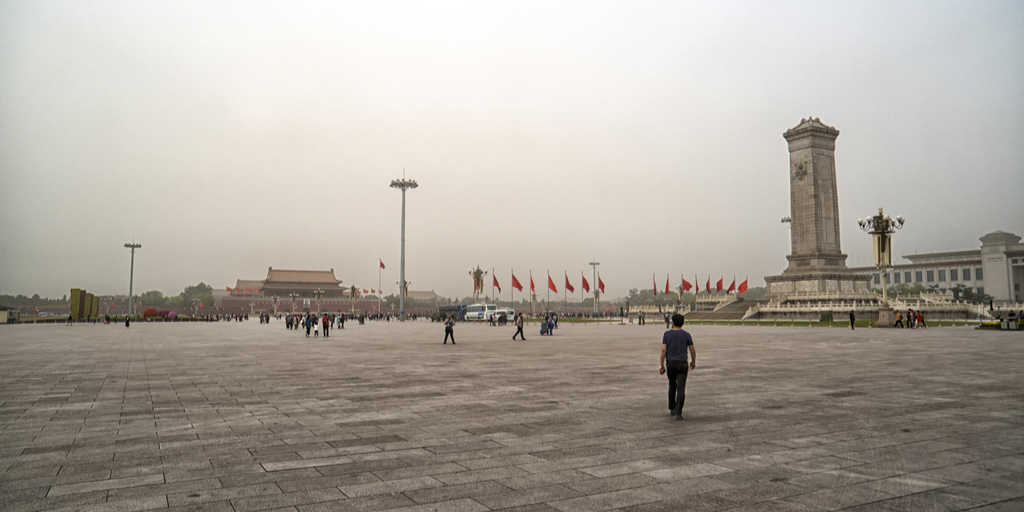Tiananmen: Teng Biao Responds
The international media has paid enormous attention to the 30th anniversary of the Tiananmen massacre. The main reason is that its influence is still there. The human rights situation is deteriorating, the Chinese Communist Party’s monopoly of power is strengthened, and China is leading all undemocratic governments in undermining the free international order.
The international community was also shocked by the Hongkongers’ protest against the proposed extradition bill, which allows the Hong Kong government to detain and transfer anyone in Hong Kong to China, where the judicial system is no more than a Party machine and torture is rampant. A million Hongkongers, dressed in white, went out on June 9 and two million, in black, on June 16.
The dangers to freedom in Hong Kong are the best evidence of Tiananmen’s long-lasting effects. In 1997, the sovereignty of Hong Kong was transferred from the United Kingdom, the first country in history to achieve a modern liberal democracy, to the CCP, which had brutally killed thousands just eight years earlier. The UK and the other Western democracies didn’t think twice about dooming Hong Kong.
As Yvonne Chiu correctly said, “When the international community sacrifices its own values for the sake of regional and international stability and economic growth, it only tells the CCP that it need not cooperate or reform, as it already gets what it wants by pursuing its current course.” The assumptions, calculations, and values of the engagement/appeasement policy toward China adopted by the democratic countries since 1989, or even earlier, have been proven wrong. We might be seeing something of a policy shift in recent years in the United States, Australia, and a few others, but the mainstream scholars and policymakers are reluctant to admit their mistake and want to continue appeasing Beijing.
What’s more, the new hawkish approach toward China is not based on human rights, freedom, and democracy. The issue of human rights, in the best case scenario, is used as a bargaining chip to achieve political or economic goals. Which means it can be thrown away at any time. Realpolitik and short-term benefits override universal values.
The comparison that Michael Auslin drew between the Tiananmen Movement and the May Fourth Movement is inspirational. The historical aspects of his essay deepen our understanding of the 1989 Movement and repressive government response, and the current political trends in China. A tension between the themes of “Mr. Science” and “Mr. Democracy” is indeed woven throughout Chinese history in the past century (1919 to 2019).
But a few comments should be added to the argument of “China’s Privileging of ‘Mr. Science’ over ‘Mr. Democracy.’ ”
First: That which the government would privilege—scientific research—is thwarted when academic freedom, free speech, freedom of movement, and political participation are suppressed in China.
Second: Science and technology were utilized by the CCP to strengthen the high-tech totalitarianism I described in my Liberty Forum essay. When science and technology stray from the universal values inhering in “Mr. Democracy,” it is terrifying. In addition to Artificial Intelligence, the Great Firewall of China, facial recognition software, and surveillance cameras, all of which empower an Orwellian state in China, another recent example might be DNA manipulation. (We note Professor He Jiankui’s proud claim to have achieved the world’s first genetically edited babies.)
Lastly but most importantly, I would point to the CCP’s long history of anti-intellectualism, as seen in the Great Leap Forward, the Cultural Revolution, the politicization of academic research (especially social science), the aforementioned GFC, Xi Jinping’s Document No. 9 and “the seven unmentionables,” the recent campaigns against Western textbooks, and the cult of personality (old and new versions). The CCP’s manipulation of historical truth is totally against the spirit of Mr. Science. A totalitarian regime seems to be anti-intellectual by its very nature, but the CCP’s vicious uses of science and technology is even more alarming.



